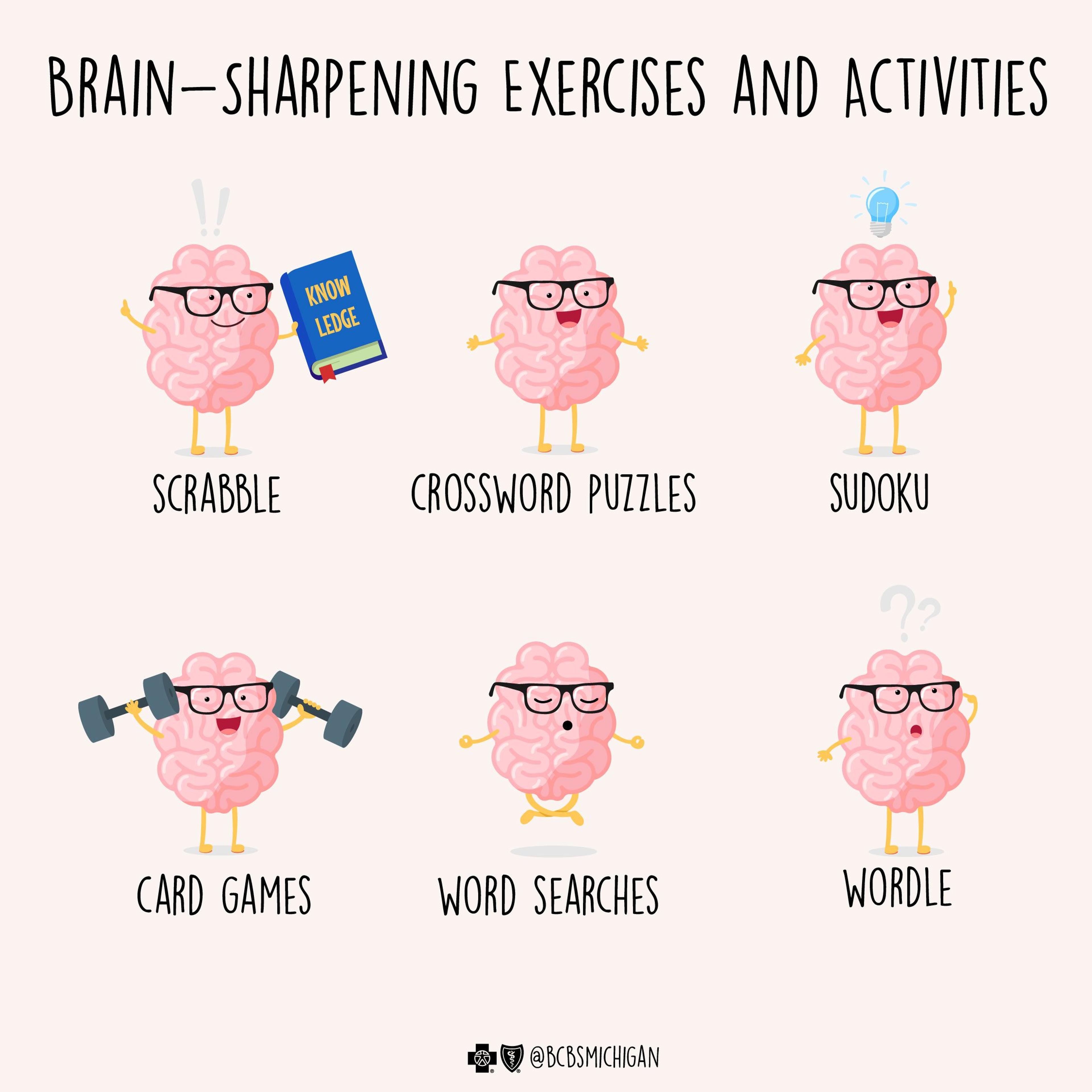Brain-Sharpening Exercises and Activities
Shandra Martinez
| 3 min read

Forgetting a friend’s birthday, misplacing your keys or not being able to remember what you were looking for when you walked into a particular room: Moments like these can catch us by surprise. We may even laugh them off as simply having a “senior” moment. But because our brains change as we age, it’s important to understand these changes and how brain-sharpening exercises and activities can help bolster our mental fitness as we get older.
Our skin, knee joints and upper arms aren’t the only things that change as we age. Our brains change with each passing decade, too. According to Columbia University’s Mailman School of Public Health, by the time children are in first grade, their brain’s size has increased to about 90% of its adult size. There’s very little change until about age 40, when the brain starts to noticeably shrink. By the time people reach their 60s, that shrinkage rate has increased.

Other brain changes associated with age include:
- The frontal lobe and hippocampus get smaller at a faster rate than other areas. These parts of the brain control cognitive function.
- White matter shrinks, slowing down cognitive abilities.
Prevent the decline. There are ways to keep yourself mentally fit and slow or even prevent some of this natural decline. Harvard Medical School recently shared some easy lifestyle changes people can make in order to help keep their brains sharp. These include:
- Limit alcohol consumption to just one drink – or less – per day.
- Switch to a Mediterranean-style diet with plenty of fruits, vegetables, whole grains and lean protein.
- Don’t smoke.
- Get enough sleep. Keep in contact with friends.
- Stay physically active, even if it’s brisk walking.
Brain games. Just like you exercise your muscles when you work out, some health care professionals say it’s equally important to do the mental gymnastics associated with brain games. Benefits include an improved memory, better concentration and an increased ability to focus. Research shows playing brain games can help slow the cognitive decline we experience as we age.
Trying new hobbies and varying your daily walking route are a couple ways you could help create new pathways in your brain, keeping things sharp. Social activity is another way. Talking to friends and meeting people in the community all help foster a healthy brain. And don’t overlook games. They can help keep your brain engaged in a fun way, especially if you play with family or friends. Here are some suggestions to get you started:
- Scrabble
- Wordle
- Card games
- Sudoku
- Crossword puzzles
- Word searches
Related:
- How to Avoid Overthinking
- What is the Goldilocks Rule for Social Media Use?
- Why Random Acts of Kindness are Good for You
Photo credit: Getty Images





